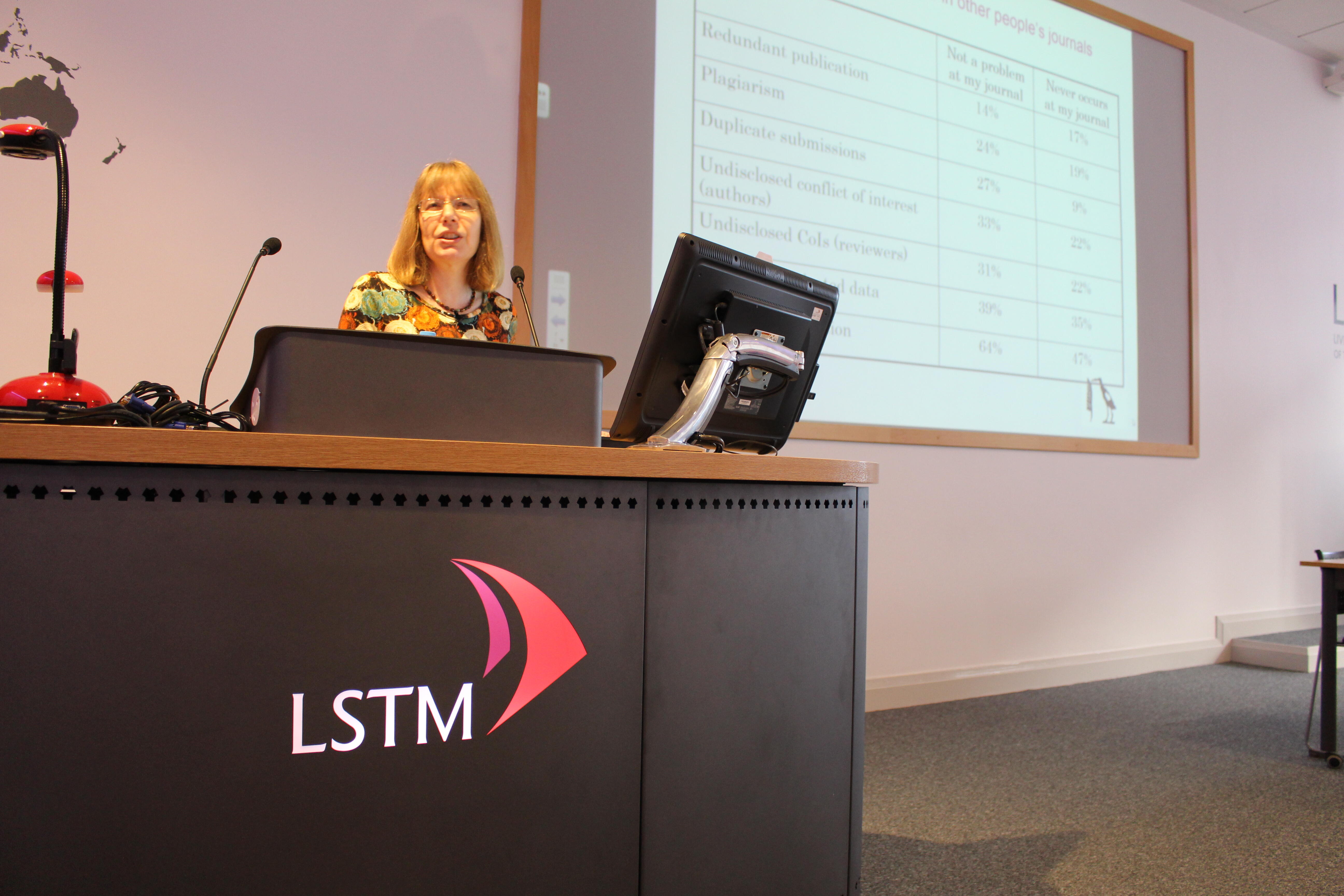
LSTM’s Seminar Series continued with a presentation to LSTM staff and students by Dr Liz Wager, Publications Consultant and Visiting Professor from the University of Split, School of Medicine. Dr Wager’s talk entitled: Why research integrity (RI) isn’t just ‘somebody else’s problem’.
Misconduct is common: 2% of academic researchers admitted misconduct in reporting and 14% were aware of misconduct by others, Dr Wager pointed out, quoting from a study by Fanelli et in the journal Plos One. However, not all editors are aware of the problems of redundant publication, plagiarism, image manipulation and falsified data-and certainly research usually shows editors believe it happens “but not in their journals”.
Industry is usually blamed, said Dr Wager, but this was an over simplification. View misconduct as a spectrum from little errors, poor reporting all the way to fraud that includes falsification, fabrication of data and plagiarism. Everyone focuses on the serious end of the spectrum, whilst those seen as minor infractions can have a more damaging cumulative effect in putting bad science into the public domain.
To illustrate this Dr Wager used examples of underpowered studies, publication bias and selective reporting. For underpowered studies, she examined animal studies, in which the underpowered use of animals (where too few are used), and poor study design can have an impact on the outcome. For publication bias, Dr Wager pointed out that the results of an estimated half of all clinical trials performed never get published. She poses that the wrong questions are being asked and that we should look at some of the reasons why researchers may go down the route of doing the wrong thing to begin with, such as pressure from funders, from departments and institutions. Selective reporting-where the primary outcome of trials is altered at publication in order to have statistically significant headline results-is also worryingly common.
To conclude she calls for a change of culture where RI becomes everybody’s responsibility and that supervisors require training to ensure that responsibility is taken on an intuitional, departmental and individual level. Making some suggestions about how this may be achieved Dr Wager mentioned the role of the San Francisco Declaration on Research Assessment (DORA), to which a number of institutions and publications have signed up looking at a more effective way of assessing scientific impact rather than over reliance on journal’s impact factors.
Dr Wager, a frequent visitor to LSTM, then took a number of questions from the audience before hosting a workshop for staff alongside Professor Garner.
A recording of the Seminar can be found here: